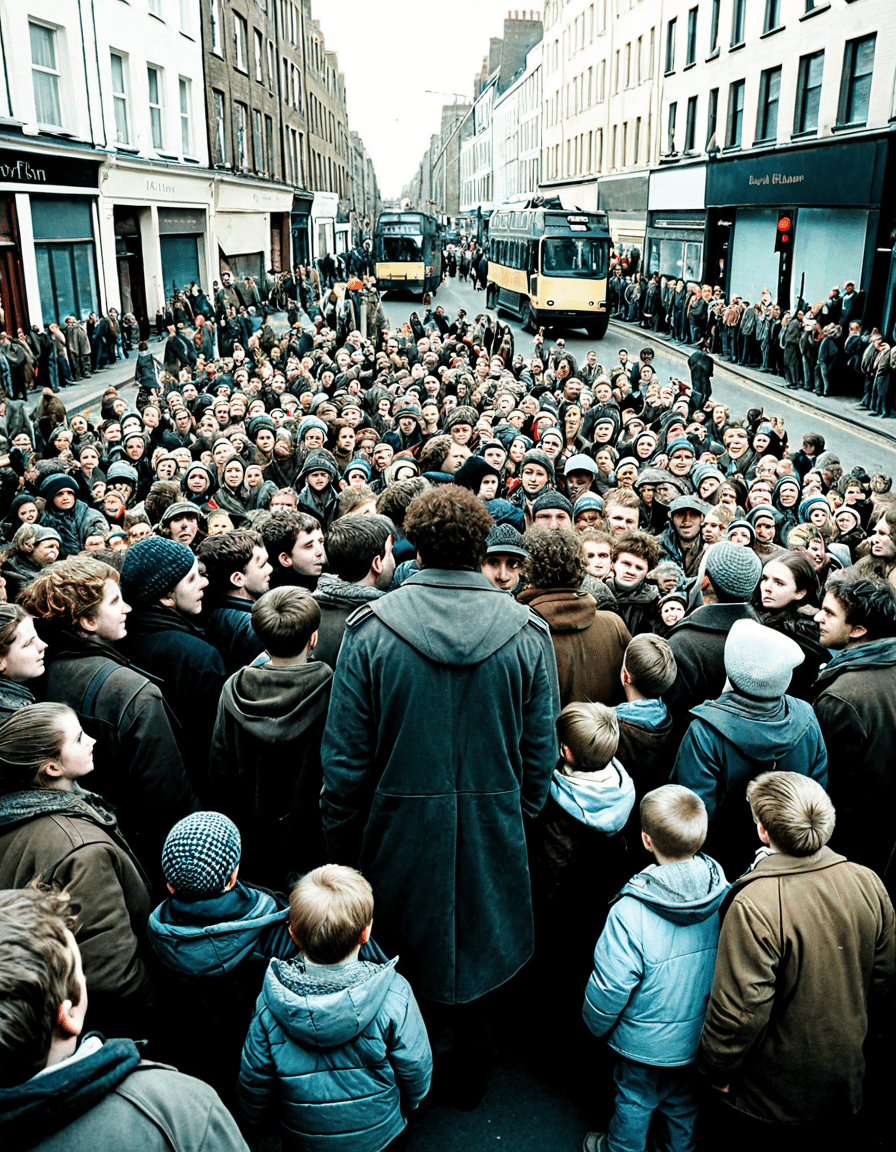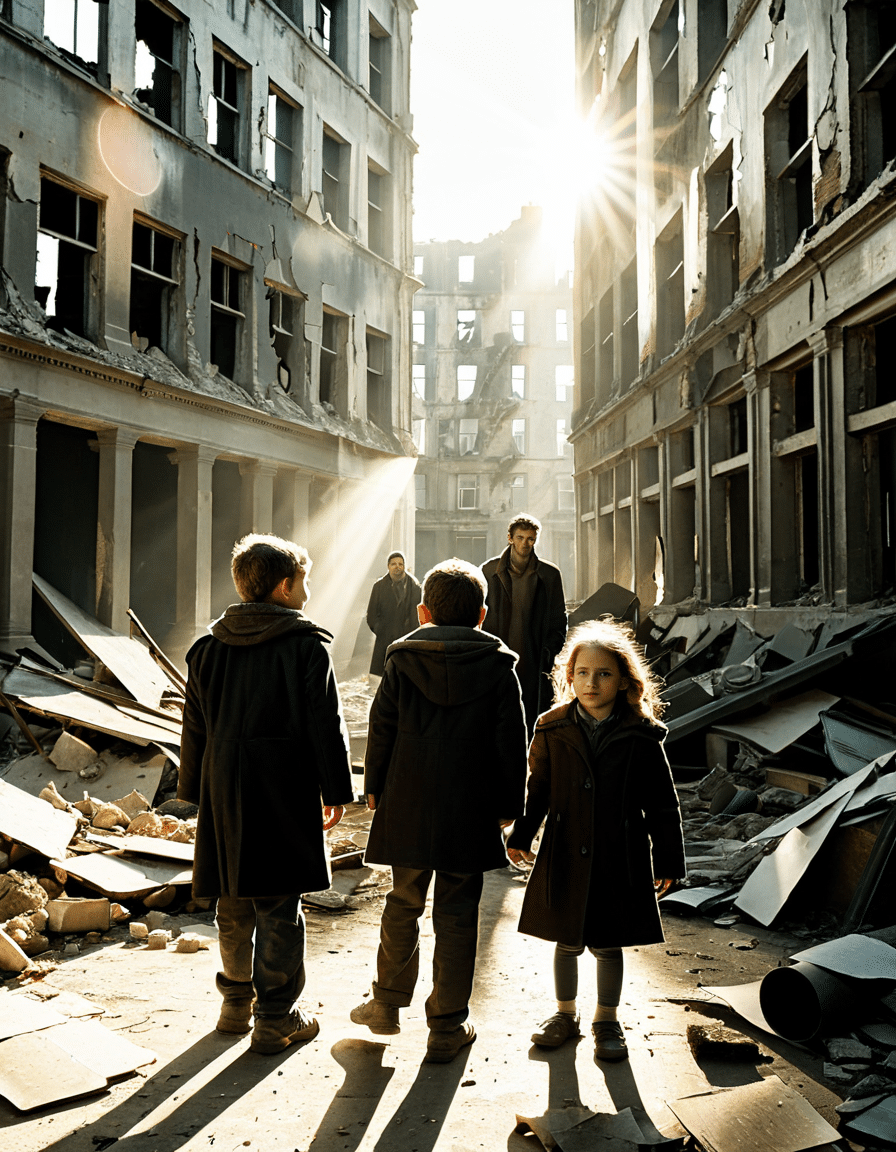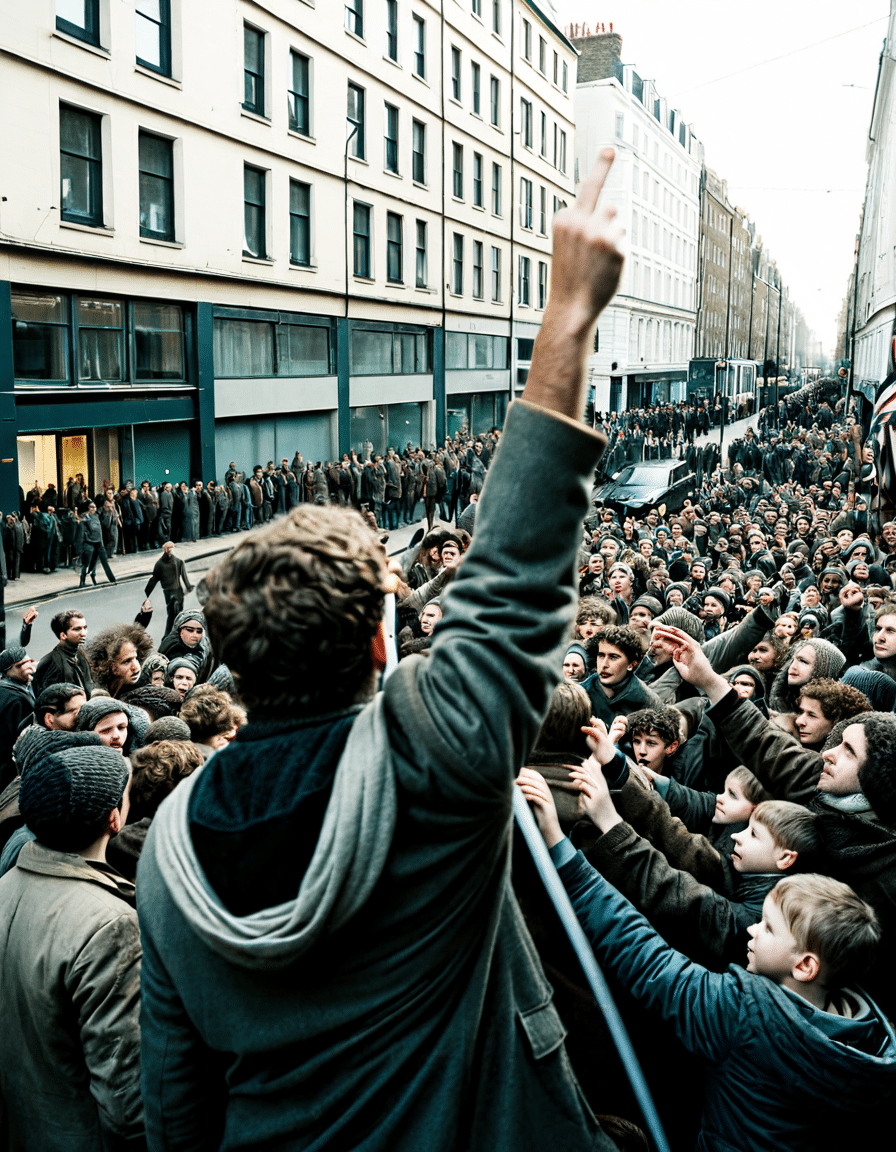The 2006 film Children of Men, directed by Alfonso Cuarón, continues to resonate with contemporary audiences due to its haunting portrayal of a world ravaged by infertility and despair. As we step into 2026, its themes feel both alarmingly timely and profoundly impactful. This article dives into the film’s narrative brilliance, thematic depth, and the incredible performances of its cast—showing how Children of Men captivates with a bleak future while weaving threads of hope throughout its narrative. Buckle up, cinephiles; we’re about to dissect a masterclass in filmmaking!

Top 5 Reasons Children of Men Captivates Audiences with Its Bleak Yet Hopeful Message
1. A Dystopian but Familiar World
Children of Men portrays a chaotic dystopia, where societal collapse unfolds thanks to mass infertility. This cautionary tale mirrors today’s pressing issues like climate change and authoritarianism, prompting us to ponder what might happen if these problems spiral out of control. The bleak landscapes of London, a character in its own right, serve as a visual reminder of our current state. This film throws down the gauntlet, urging us not to sit on the sidelines while our world teeters on the edge—just like the chaotic backdrop that feels like a jarring reflection of our own lives in 2026.
2. The Cast of Heart Eyes: Stellar Performances
Let’s talk about the cast, shall we? Clive Owen as Theo Faron leads with a performance that blends weariness and determination as he navigates a world that has long since lost its way. He shares the screen with Julianne Moore, whose portrayal of Julian exudes urgent resilience, and Michael Caine, who portrays Jasper with the wisdom of a sage and the love of a grandparent. Together, they encapsulate a spectrum of emotions—love, grief, and an unquenchable thirst for survival. Their chemistry not only captivates but also evokes genuine empathy, allowing the audience to connect deeply with characters facing impossible challenges.
3. The Role of Hope in a Despairing World
Hope dances through the shadows in Children of Men, particularly encapsulated by Kee, a young woman who miraculously becomes pregnant. Her pregnancy sparks a flicker of hope, blurring the lines between despair and renewal. This miraculous event becomes a beacon, igniting a collective yearning for change. The narrative illustrates one of the film’s key messages: even in dire circumstances, hope can unite us. The struggle for Kee’s safety and the potential new life she carries serves as an anthem for humanity—reminding us that there’s always something worth fighting for. This flicker of optimism keeps us engaged, just like a suspenseful thriller, ensuring that audiences are rooting for a happier ending.
4. Concept of Community: Trolls Band Together Against All Odds
Amid the chaos, Children of Men beautifully illustrates the strength of community and solidarity. The film showcases how people—much like the proverbial trolls banding together—can unite against adversity. Theo’s relationship with the refugees mirrors today’s social movements, where marginalized communities strive for survival and dignity. Their collective strength and unwavering support for one another highlights that even in the direst of times, hope and unity can push us forward. In 2026, as we watch current social movements unfold, the movie’s message resonates even louder, urging us to seek connection and support one another.
5. The Unforgiving Landscape and Its Symbolism: Cast of Land of Bad
The desolate London setting in Children of Men acts as a powerful character, embodying societal decay and emotional turmoil. The barren streets—symbolic of hopelessness—force viewers to confront the reality we live in. These bleak visuals evoke critical examinations of how environments reflect inner chaos. Just as the cast of land of bad illustrates the downfall of society, the film prompts us to think about our own spaces. How do we reclaim and restore what has fallen apart? In today’s rapidly transforming world, this reflection is crucial. Let’s face it—if we don’t recognize the landscape around us, we might just find ourselves lost in it.

The Rising Influence of Children of Men in Pop Culture
Fast forward to 2026, and the impact of Children of Men on pop culture is undeniable. Elements from the film show up everywhere—from television shows embracing dystopian narratives to video games inspired by its gripping aesthetic. Filmmakers frequently cite Alfonso Cuarón’s groundbreaking techniques as a wellspring of inspiration and innovation. The discussions about resilience in the film continue to shape narratives in gaming and television, inviting audiences to confront their own futures amid societal challenges.
A Vision Beyond Despair
Ultimately, Children of Men remains a cherished cinematic experience, celebrated for its storytelling and profound themes exploring hope amid despair. As society continues to grapple with various pressing challenges, this film acts as both a mirror and a roadmap. It serves as a reminder that hope can emerge from the darkest of times, urging us to elevate values like community, resilience, and unity. In a world that can often feel like a chaotic mess, Children of Men shines a light, reminding us all about the power of hope and togetherness in fighting against existential threats. It’s a call to action, folks! Keep your hearts open and your spirits high; after all, we must be the change we want to see—because even in a tough world, there’s always room for a glimmer of optimism.
So, whether you’re a die-hard fan of dystopian cinema or just diving into the deep end of Children of Men, take a moment to appreciate how this film isn’t just entertainment; it’s an urgent reminder of our shared humanity. From the cast of heart eyes to the rotating cast of land of bad, the film encompasses it all. And now, as they say, “It’s a wrap!” Let’s keep the conversation going about how we can fight for a future where hope shines bright!
Children of Men: Fun Trivia and Interesting Facts
A Lesson from Animation and Comedy
“Children of Men” isn’t just your standard dystopian flick—it’s a visual feast that draws inspiration from various sources. Director Alfonso Cuarón, known for his knack for detail, infuses the film with a unique energy reminiscent of the storytelling magic found in the works of creators like Akira Toriyama, popular for his dynamic animation style. Speaking of creativity, did you know that the screenplay reflects ideas from other genres too? Fans of comedy might find a chuckle knowing that Cheech And Chongs approach to social commentary has a surprising parallel in the film’s bold themes that weave humor with deep societal issues.
Struggles and Triumphs
“Children of Men” paints a picture of a world gripped by despair, yet it also embodies hope. The notion of perseverance shines through, similar to how celebrities like Serena Williams continually rise amid adversity. While the film offers a heavy narrative, its undertones encourage viewers to reflect on real-world challenges. In a similar vein, just as Jessie T. Usher has navigated the ups and downs of his acting career, “Children of Men” reminds us that even in the bleakest scenarios, a glimmer of hope can be found. As for trivia lovers, exploring the film’s background reveals an environment not unlike Las Vegas where people are constantly chasing their dreams, much like the tumultuous events hinted at in Vegas Sweeps.
Iconic Performances and Cultural Impact
The film features standout performances that resonate with audiences long after the credits roll. The character played by Clive Owen is engaging, embodying fears of societal collapse and the longing for continuity. In a twist of fate, fans might see echoes of iconic figures like John Cleese, renowned for his satirical take on life’s absurdities. Furthermore, as you consider the development of characters like Jaehaerys Targaryen in popular culture, you can appreciate the depth with which Cuarón constructs his world in “Children of Men. Each performance carries weight, pushing viewers to contemplate the consequences of their realities.
In the end, “Children of Men” is more than a film; it’s an experience that stirs emotions and encourages introspection. Through its careful blend of hope and despair, it mirrors the human condition, making us wonder: what future do we truly want to create?





